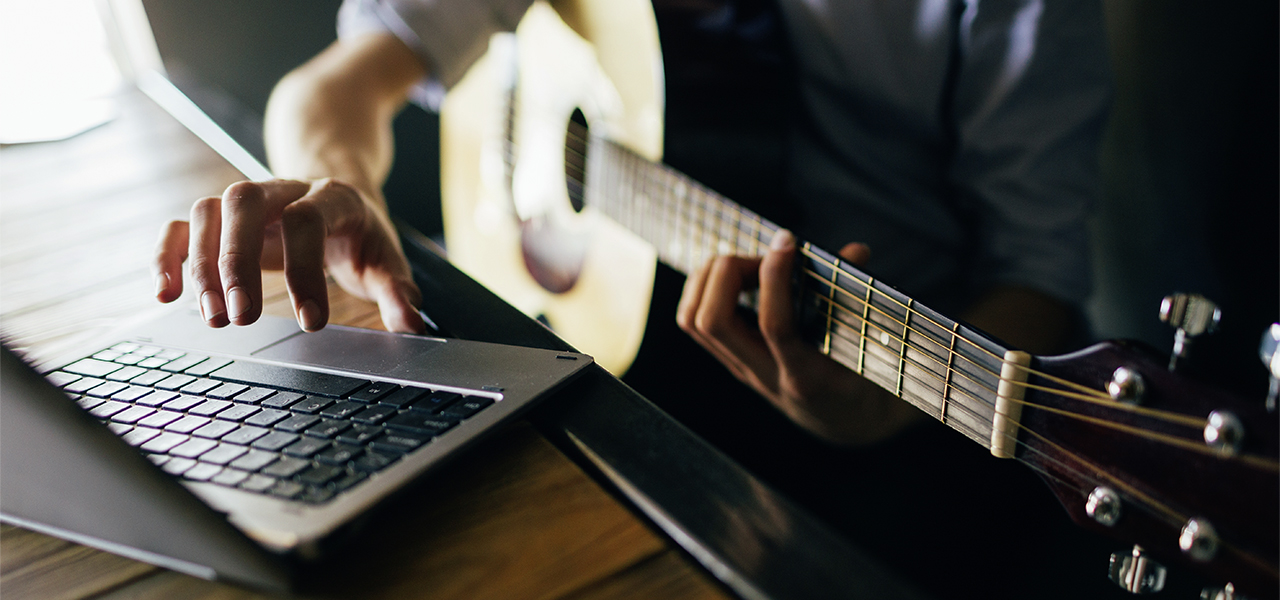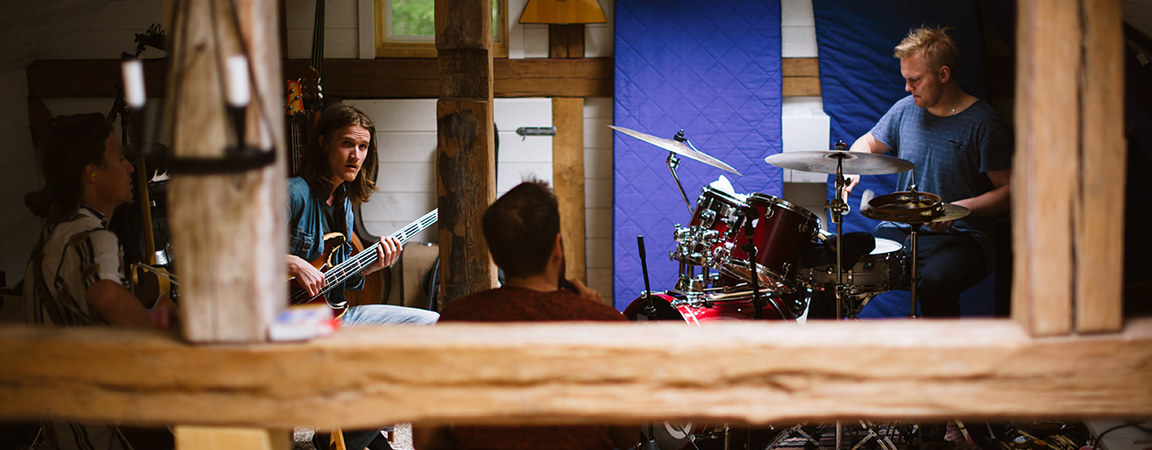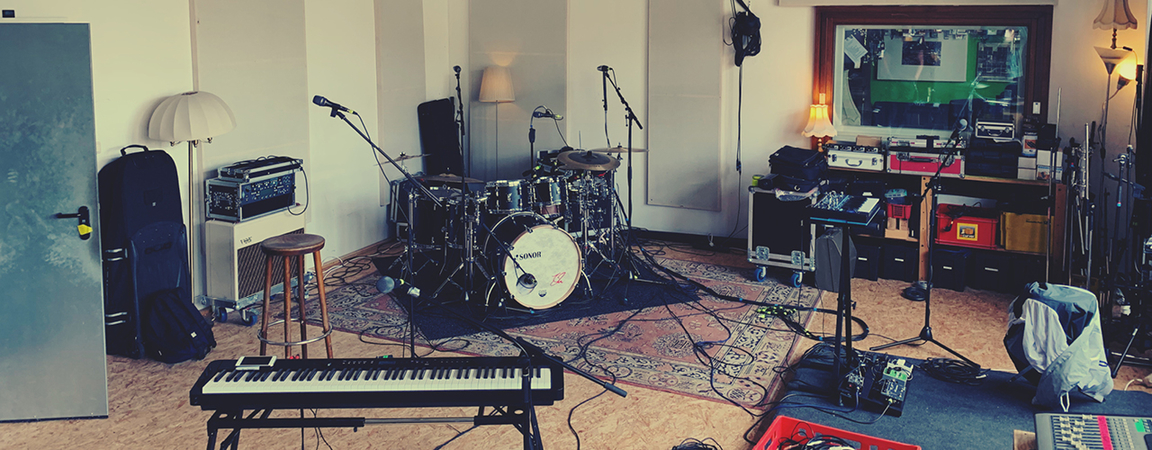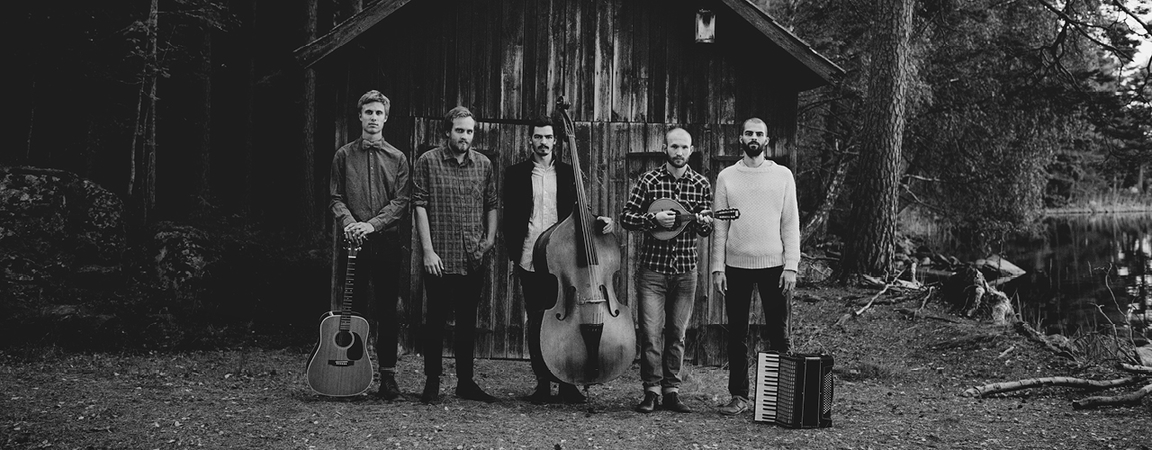
How to stay visible as a band in times of the corona pandemic: efficient DIY music promotion without a big budget
6 tips for better music promotion by digital music marketing
The dream of many musicians and bands is to, one day, reach thousands, tens of thousands or maybe even more people with their own music, to play concerts in front of big crowds. This takes some effort. Good songs certainly are the most important part. However, without a certain charisma success is still unlikely. And it is also a matter of self-marketing. If only because there are thousands and thousands of bands out there who want the same as you do, i.e. attention. Especially in times of corona it is all the more important to attract digital attention. Here you can find out how to do this with a small budget.
An overview on digital music promotion:
1. Promote your Facebook posts with a small budget
With 2.4 billion users, Facebook is still the world's largest social network in 2020. According to a widespread rumour, ads on Facebook or Instagram are expensive or complicated. But in fact, you can increase your reach many times over even with a budget of 20 to 30 Euros a month. Divided by three or four band members, this is feasible for most musicians. There are three types of posts that you should promote by spending money on them:
Videos, in your case music videos, live recordings or content.
Events, in your case mostly concerts. Here you can specifically promote individual concerts of yours in advance. You should proactively approach the organiser of the respective concert and ask for compensation for your effort. If you pay for promotion of your concerts on Facebook, you will after all attract visitors to the location. The promoter might well chip in with some money, pay you a higher fee or you could negotiate a better door deal.
Your fan page as a whole, to generally popularise your band name and to draw more attention to you and your social media activities
The key to success is to control the distribution as accurately as possible. After all, you want exactly the right people to see your posts and not just anyone.
The following three parameters are important for this:
1. Interests and demographics of your target group
Facebook can find people who listen to bands with a style similar to yours. Be honest with yourself, it's about finding bands with a similar style, not bands that you admire yourself.
Facebook also knows which users read genre-specific music magazines. You play heavy metal? Then maybe your target group is everyone who reads Metalhammer?
Choose your target group according to the music genre, but only in combination with ...
... a narrowly defined region. With a small budget, it doesn't make sense to address all Facebook users, even in Germany, with the interest 'hard rock'. However, it does make sense to address all hard rockers in Hamburg and surroundings.
... age: make a realistic estimate of how old your target group is. Choose a small age group like '18 to 28 years'.
Include or exclude groups of people
- You can address people who have interacted with you before - this way you bring yourself back to mind.
- You can specifically exclude people who have already interacted with your fan page, this way you can reach completely new groups of people
- or focus on groups of people who resemble your fans.
Use the information you get from Spotify and other streaming services
Spotify provides you with demographic data about your listeners. Use this information. Especially for paid Facebook posts you can use the data from Spotify or other streaming services. Is there a particular age group that listens to you? Focus on them. You may also be making music that is popular in urban areas. Why not focus on the 10 largest cities in Germany?
2. Produce (video) content for your fans
Promo by content is easy to explain: instead of just recording songs, you consider what else might interest your fans. Maybe they find it fascinating how your songs are created. Make a small video that shows your songwriting process. Or let the fans take a peek behind the scenes, for example with a tour of your rehearsal room, a rig rundown or a commented look at your beloved pedalboard.
You can also make classic how-to videos and share your experiences with the world. How do you plan a tour despite having a full-time job? How does a band find a suitable rehearsal room? What does your technical rider look like and what is most important to you? Or you shoot an opinion video: what is your view on fees, Pay2Play and door deals, how do you deal with stressful promoters? The great thing about all this content is that it works perfectly on social media. For particularly good content you can also create your own Patreon page and maybe cover some running costs. The Patreon page of our endorsement musicians The Hirsch Effekt is exemplary for this.
3. Give away stickers with your band logo, website and a QR code
People simply love high-quality stickers. Probably because they make it so easy to decorate your own guitar case, laptop and the door of your shared flat. Stickers with a QR code are the analogue counterpart to paid Facebook posts, only they are potentially more durable. Depending on how much money you want to spend, you give away stickers at concerts or put one or two with every CD, LP, shirt or whatever you sell as merchandise.
4. Contact playlist creators and promote your band
In the past a band tried to be known by as many DJs as possible in order to be played. Although playlist administrators on streaming services and YouTube are not DJs, there are playlists with thousands of subscribers. It's worth it to show up there as a band with a powerful song. And just in case you have not yet entered the digital world, on YouTube you can simply create an account yourself, for Spotify and similar streaming services you need a service provider who will register you there.
5. Let your music be remixed or covered
This way you will make it onto the playlist of another artist. In turn, the other artist is also interested in promoting the remix of your song. In the age of digital media, it is easy to find someone who has the time and inclination, for there are whole remix communities. And maybe you will even find an artist for future collaborations. Win-win.
6. Maintain your website and take it seriously as a platform
Social networks are all well and good, but your own website is still important even today. It is your 'digital home'. Put yourself in your (potential) fans' shoes: they pick up your name somewhere and search either directly on Facebook or more likely on Google. The first search result should be your band's website. Keep in mind that for a user who finds your website on Google, it probably is their first contact with you. What do you show them? What would you want to see first as someone who just discovered a band? Probably not the new cool t-shirt design or the club tour through Japan, but rather the current song and the latest music video.
If someone searches your band name on Google, they should definitely get to your website. This way you can influence the first contact of new prospective fans with your band as a brand. The first impression counts! Fans can see your discography here and browse your complete merch. Here, they can find the press kit and the technical rider. If you also produce content yourself, this is where you link to YouTube or Vimeo or to your social media channels.
With our tips you will soon find your way onto the playlists of your future fans. Furthermore we recommend the 'Guerrilla Music Marketing Handbook' by Bob Baker. For your first club tours at the latest, you will need a technical rider and you should consider carefully how much your music is worth in times of door deals or digital concerts.
Header graphic: © igor_kell – Adobe Stock
- 12 November, 2019
- 30 August, 2019
- 23 September, 2019



